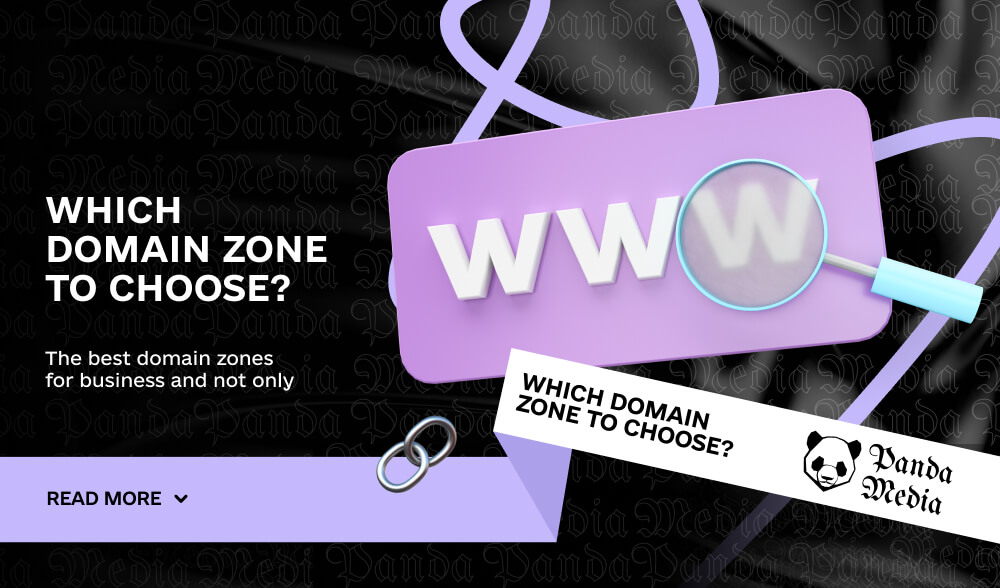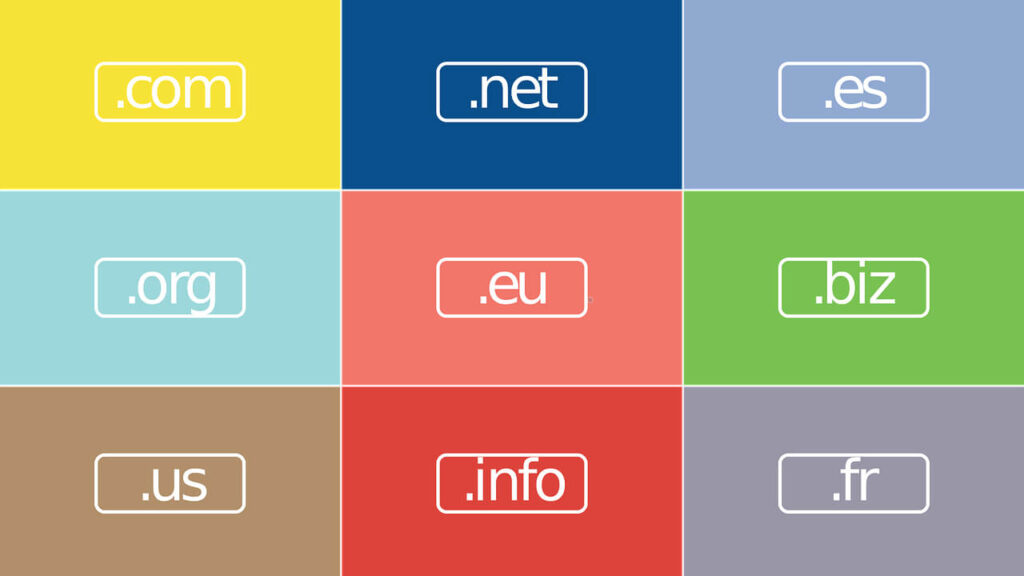Don't miss interesting news

Which domain zone to choose? The best domain zones for business and more

A domain is the first thing users see when interacting with a website. And if the owners of online resources come up with a domain name on their own, then when searching for a domain zone, you have to choose from existing options.
The usual .ua, .com, or .net pointers are actually much more important for online business than it might seem at first glance. Let’s try to figure out what domain zones are and whether there are rules to follow when choosing the right identifier.
A domain zone is a component of a domain that is located to the right of its name.
Historically, domain zones were used to designate geographic areas and the purpose of a web resource. In 2010, ICANN, a company that coordinates domains and IP addresses, allowed the creation of generic top-level domains, as well as domain zones for brands and companies.
Why do we need domain zones? First, a well-chosen domain zone helps to attract more users. Thanks to this information, the visitor will understand the theme of the website, its geographical focus, etc. For example: Webpromo has two separate websites for users from Ukraine and Kazakhstan. Thus, the Ukrainian version has the “.ua” domain zone, while the Kazakh version has the “.kz” domain zone.
In addition, short and to-the-point domain zones make it easier to remember IP addresses. Instead of using a series of numbers for each computer, the domain name system was created to organize addresses in a more user-friendly way. To choose a domain zone for your web resource, you should first familiarize yourself with its types.
Domain zones are conditionally divided into 2 large subcategories:
As a rule, domain registration is a free procedure. No one controls it, and no one requests documents. Therefore, site owners are free to choose any domain zone. But it is advisable to follow the unspoken rule and register the domain correctly.
Such domain zones indicate the region in which the site operates. There are many options (their number is equal to the number of countries in the world):
ua – Ukraine
es – Spain
uk – UK etc.
For commercial platforms (online stores, corporate portals), it is very important to indicate the region in which they operate. This way, users will understand where they are and whether they can order goods with delivery to their city.
These domain zones include:
com, net, info, org.
Initially, it was planned that each option would denote a certain type of organization: com – commercial companies; net – companies responsible for the operation of the Internet (providers), info – information sites (blogs), org – other organizations. However, with the emergence of a huge number of websites, this requirement was no longer strictly adhered to, and the general domain zones became “blurred”. For example, if the .info domain zone is busy when registering a blog, its owner chooses another option – .com, .net or .org. Today, this is not so important. It can be said that generic domain zones are chosen by websites that are targeted at users from several countries at once. For example, blogs are created for all Spanish-speaking people from Latin America. Or if a company provides services without a regional binding (online courses), it can also take a .com or .org domain, rather than .es.

Among the rules for choosing a domain zone, we have identified the following important tips:
A domain zone is a way to present the company’s activities concisely and succinctly. Not so long ago, the .name identifier gained popularity, which is relevant for personal web resources. More and more business card sites are relying on this kind of pointer.
Google algorithms have many ranking factors, and the domain name is just one of them. Thus, the choice of a domain zone has almost no effect on SEO promotion of a website, but having well-designed domains will definitely help in solving many issues.
A domain name is one of the factors that new visitors take into account when building brand trust. SEO experts recommend using the “.com” top-level domain because most users are familiar with it. This domain zone is used by most of the world’s famous brands: Facebook, Apple, Google, Microsoft.
Alternative domain zones, in turn, will make your domain name thematically focused. For example, if a user is looking for a reliable source of information related to technology or IT, they are more likely to choose a resource with a “.tech” domain zone than a “.com” one.
It is important to note that choosing the right domain zone does not guarantee you a high ranking if your site does not meet the needs of users and search engine optimization requirements. A website with a generic top-level domain can have a higher ranking if the page contains high-quality content. Therefore, a landing page that is not properly optimized will lead to a loss of traffic and conversions, even despite a well-chosen domain zone.
As already mentioned, the domain zone affects the formation of user confidence in a web resource. An unsuccessfully chosen option will lead to the fact that your target visitors may consider your site illegitimate, spammy, or simply harmful.
Now you know what a domain zone is and what it affects. As you can see, there are many options, but you need to choose wisely. Which domain zone is better? The one that is ideal for your website. We advise companies to choose regional options. And for owners of information sites, blogs, and other platforms, any domain zone will do. Including one of the new ones, if you need an interesting URL.